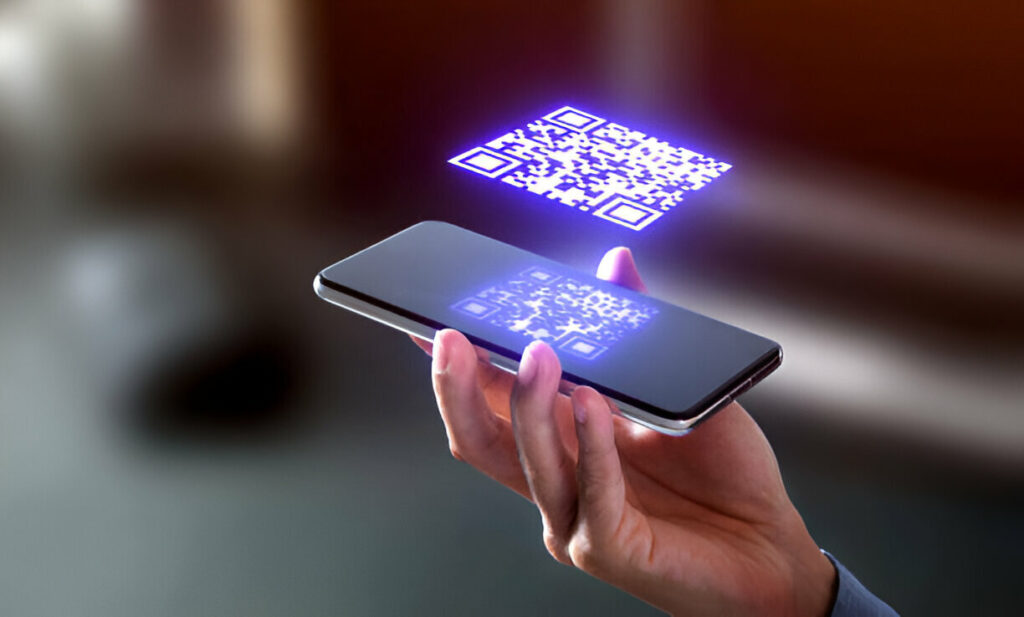Brief
In modern urban transportation systems, mobile-first infrastructure is transforming how people interact with public transit. Recognizing the inefficiencies of physical ticketing and smart cards, the Delhi Metro Rail Corporation (DMRC) introduced a Rechargeable Multi-Use QR Code feature in their app. This innovation allows commuters to top up a single QR code, scan it at AFC gates, and travel with ease. This case study by YS Tech aims to present a replicable framework of this solution, integrating both technical depth and operational strategy, to inspire and enable metro-enabled cities across the Middle East.
Previous Solutions: Tokens, Cards, Multi-Use Tickets
Legacy systems, while effective during early adoption phases, come with limitations in today’s tech-driven ecosystem:
Single-Use Tokens
- Require physical purchase before every ride.
- Lead to long queues during peak hours.
- Generate significant plastic/coin waste.
- Offer zero digital footprint for analytics.
Smart Cards
- Reusable but require manual recharge at kiosks.
- Prone to loss, damage, or misuse.
- Lead to environmental waste from plastic manufacturing.
- High hardware maintenance and distribution overhead.
Multi-Use Paper Tickets
- Physical Degradation: Susceptible to wear and tear due to repeated handling, reducing reliability.
- Security Limitations: Easier to duplicate or misuse.
- Lack of Flexibility: Limited support for dynamic fare models or personalized engagement.
- Manual Recharge Dependency: Require physical kiosks to top-up, creating long queues and user frustration.
- Operational Overhead: High need for staff and maintenance of recharge infrastructure.
- Exit Discrepancy Issues: If a user buys a ticket for Station X but exits at Station Y, staff intervention is required to settle the fare difference.
- Scalability Constraints: Ineffective during crowd surges like festivals or emergencies.
These limitations highlight the pressing need for a mobile-first, automated, and flexible alternative like rechargeable QR codes.
Problem Statement
- High CapEx/OpEx on Legacy Systems: Hardware procurement, installation, and maintenance are expensive.
- User Inconvenience: Long queues and risk of card/token loss hurt the commuter experience.
- Environmental Burden: Significant non-biodegradable waste from physical ticketing.
- Data Gaps: No analytics for demand forecasting, crowd prediction, or journey mapping.
- Low Scalability: Legacy systems can’t dynamically adjust during high footfall events.
- Human Dependency: Fare mismatch handling and customer service require continuous staff involvement.
Proposed Solution: Rechargeable Multi-Use QR Code System
YS Tech proposes a secure, mobile-centric travel system with the following flow:
- Users register via the metro app and generate a persistent multi-use QR code.
- They top-up their QR wallet using UPI, cards, mobile wallets, etc.
- They scan the same QR at the entry/exit gates, triggering fare deduction.
- The system sends real-time notifications for top-ups, receipts, and travel history.
- No hardware dependency—just a smartphone and the app.
Benefits of the Proposed Solution
- 100% Mobile-First: Reduces reliance on physical infrastructure.
- 10% Fare Discount: Incentivizes digital shift.
- Real-Time Recharge: Avoid queues and station recharges.
- Environmental Impact: No paper or plastic waste.
- Smart Notifications: Custom alerts for balance, updates, or promotions.
- Staff Efficiency: Reduces kiosk load and human interventions.
- Data Insights: Journey patterns, peak usage, and station-wise heatmaps, not only inside the stations but outside too using mobile pings.
Technical Architecture with High-Level Diagram
Key Modules:
- Mobile App (Android/iOS)
- QR Wallet Microservice
- Secure Payment Gateway
- Fare Engine
- AFC Gateway Controller
- Admin Dashboard
- Analytics & Notifications Engine

Security Aspects and How They Are Addressed
- Short-Lived QR Tokens: Expire after 30 seconds or one scan
- AES-256 Encryption: Secure QR payloads
- 2FA for Wallet Access: Biometric or OTP login
- Rate Limiting + IP Whitelisting: Prevent brute force attacks
- PCI-DSS Compliance: Secure financial transactions
- Anomaly Detection: Alerts on suspicious behavior
High Availability
- Cloud-Native Deployment: With Kubernetes auto-scaling
- Redundant Gateways: Across zones to prevent outages
- CDN Integration: For low-latency app and QR delivery
- Disaster Recovery: <60 seconds RTO with real-time backup
- Live Monitoring: Grafana, Prometheus, and ELK stack
Benefits and Advantages (Delhi Metro Reference)
Assuming 5.5–6 million riders/day with 30% QR adoption:
- ~1.6M daily card issuance avoided
- 500+ tons of plastic saved per year
- ₹10–15 crore in annual operational savings
- 50–60% queue reduction
- Boost in NPS (Net Promoter Score) for user satisfaction
- Improved planning via travel pattern analytics
Why Middle East is primed for success:
- >90% smartphone penetration
- Mature digital payment ecosystem
- Government push for paperless governance
Future Roadmap: AI-Powered Enhancements
- Predictive Top-Ups: AI prompts before wallet runs out.
- AI-Pricing: Dynamic fare based on time, distance, crowd.
- Route Personalization: Recommendations based on usage.
- Voice Assistant Integration: Natural language-based travel planning.
- Fraud Detection Models: Stop abuse based on patterns.
- Loyalty Engine: Rewards for high-frequency users.
Conclusion
YS Tech brings strong technical expertise, domain understanding, and scalable architecture blueprints to reimagine urban metro experiences. This case study outlines our vision for enabling smart, mobile-first metro systems across the Middle East—delivering cost-efficiency, user satisfaction, and operational intelligence.


